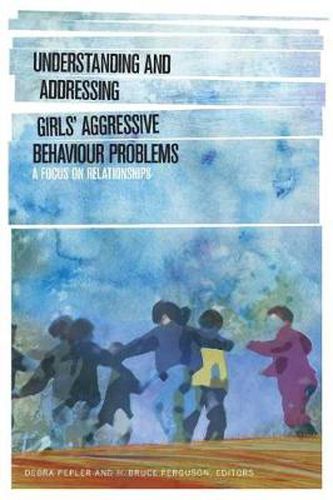Readings Newsletter
Become a Readings Member to make your shopping experience even easier.
Sign in or sign up for free!
You’re not far away from qualifying for FREE standard shipping within Australia
You’ve qualified for FREE standard shipping within Australia
The cart is loading…






This title is printed to order. This book may have been self-published. If so, we cannot guarantee the quality of the content. In the main most books will have gone through the editing process however some may not. We therefore suggest that you be aware of this before ordering this book. If in doubt check either the author or publisher’s details as we are unable to accept any returns unless they are faulty. Please contact us if you have any questions.
Understanding and Addressing Girls’ Aggressive Behaviour Problems reflects a major shift in understanding children’s aggressive-behaviour problems. Researchers used to study what went wrong with a troubled child and needed to be fixed; we now aim to understand what is going wrong in children’s relationships that might create, exacerbate, and maintain aggressive-behaviour problems in childhood and adolescence. In this volume, leading researchers in the aggression field examine how problems develop for boys and girls in relationships and how we can help children to develop healthy relationships.
Individual chapters explore biological and social contexts, including physical health and relationship problems that might underlie the development of aggressive behaviour problems. The impact of relationships on girls’ development is illustrated to be particularly important for Aboriginal girls. Contributors discuss prevention and intervention strategies that help aggressive children build the requisite skills and relationship capacities and also shift dynamics within critical social contexts, such as the family, peer group, classroom, and school.
The support of healthy development not only of children but of their parents and other important adults in their lives, including teachers has been shown to be effective in reducing the burden of suffering associated with aggression among children and adolescents - for youth themselves as well as their families, peers, schools, communities, and society.
$9.00 standard shipping within Australia
FREE standard shipping within Australia for orders over $100.00
Express & International shipping calculated at checkout
This title is printed to order. This book may have been self-published. If so, we cannot guarantee the quality of the content. In the main most books will have gone through the editing process however some may not. We therefore suggest that you be aware of this before ordering this book. If in doubt check either the author or publisher’s details as we are unable to accept any returns unless they are faulty. Please contact us if you have any questions.
Understanding and Addressing Girls’ Aggressive Behaviour Problems reflects a major shift in understanding children’s aggressive-behaviour problems. Researchers used to study what went wrong with a troubled child and needed to be fixed; we now aim to understand what is going wrong in children’s relationships that might create, exacerbate, and maintain aggressive-behaviour problems in childhood and adolescence. In this volume, leading researchers in the aggression field examine how problems develop for boys and girls in relationships and how we can help children to develop healthy relationships.
Individual chapters explore biological and social contexts, including physical health and relationship problems that might underlie the development of aggressive behaviour problems. The impact of relationships on girls’ development is illustrated to be particularly important for Aboriginal girls. Contributors discuss prevention and intervention strategies that help aggressive children build the requisite skills and relationship capacities and also shift dynamics within critical social contexts, such as the family, peer group, classroom, and school.
The support of healthy development not only of children but of their parents and other important adults in their lives, including teachers has been shown to be effective in reducing the burden of suffering associated with aggression among children and adolescents - for youth themselves as well as their families, peers, schools, communities, and society.